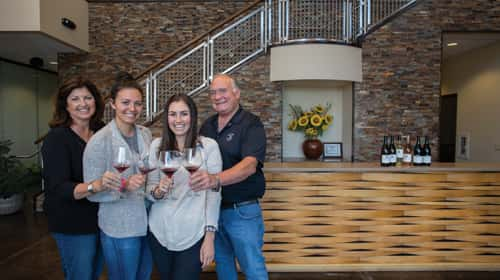Starting a business and developing it into a prosperous enterprise is a major accomplishment. And so, the desire to pass it on to the next generation and see it continue to grow comes naturally. It’s a legacy that has the potential to provide security for a family, but it takes more than handing over the keys to the door. Rather, careful long-term planning for succession provides the best chance for the transition to succeed and a business to endure.
Chuck McPherson, a 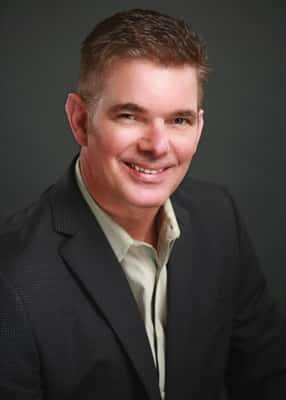 partner at Leap Solutions Group, Inc. in Santa Rosa, specializes in assisting family businesses with succession, and he believes conscious planning is essential if a company is to remain strong. “Start way before you think you need to. You’re trying to put all the pieces together for the end game,” he says. He recommends that an owner begin five years before retirement because it’s a time frame that allows the first year for figuring out what the plan for succession should be and who should be involved. That usually means one of three strategies: passing ownership on to family members, having a non-family member take over or selling the business. (A fourth option is to close the business.) The additional four years give an owner sufficient time to implement the plan and the designated successor a chance to be involved in every aspect of the business and learn how it works.
partner at Leap Solutions Group, Inc. in Santa Rosa, specializes in assisting family businesses with succession, and he believes conscious planning is essential if a company is to remain strong. “Start way before you think you need to. You’re trying to put all the pieces together for the end game,” he says. He recommends that an owner begin five years before retirement because it’s a time frame that allows the first year for figuring out what the plan for succession should be and who should be involved. That usually means one of three strategies: passing ownership on to family members, having a non-family member take over or selling the business. (A fourth option is to close the business.) The additional four years give an owner sufficient time to implement the plan and the designated successor a chance to be involved in every aspect of the business and learn how it works.
McPherson reports that second-generation businesses have a low success rate, often because a successor hasn’t had proper training. He gives the hypothetical example of an owner who decides to retire in one year and asks a child to take over the company. If the younger person isn’t fully involved for a lengthy period of time, chances are he or she won’t have the opportunity to understand the inner workings of the business or develop the relationships necessary to ensure continuity.
In addition, he observes that a generational component sometimes comes into play. Baby Boomers had to earn their right to sit at the table and became knowledgeable in the process, whereas a younger generation has it handed to them. “Sometimes the failure is on the part of boomers,” he says. “They need to educate the younger generation and do great succession planning.”
Learning experience
John Balletto, president and founder of Balletto Winery in Santa Rosa, doesn’t have any immediate plans to retire, but he recently turned 60, and has begun to consider the future. “It’s kind of a dream to have our kids come in and take over the business and keep it running,” he says. Thus, he and his wife, Terri, are giving their daughter Jacqueline, 27, the opportunity to learn about the winery from the bottom up, hoping that she, and perhaps her younger sister Caterina, 25, will someday take over ownership.
Succession wasn’t an issue for Balletto when he started work. He was 17 and preparing to go to college when his father died, leaving the family without an income. He gave up his plans for further education, and he and his mother started a vegetable-growing business to earn a living and later added a packing company. He pivoted to winegrape production in 1995, after losing crops to El Niño storms and facing increased competition as a result of NAFTA, and then started the winery. He and Terri are actively involved in the business, but over time, they’d like to pass on more responsibility to their daughters.
“People look at the wine business and think it’s wonderful,” he says, but they’re not aware of everything that goes on behind the scenes. He and Terri are giving Jacqueline the opportunity to have a hands-on experience so she can become familiar with every part of the business, from looking after employees to learning about California laws that govern the wine industry. “It’s so important to know all those things,” he says. Jacqueline is currently the tasting room manager, and handles the direct-to consumer division. She’s also responsible for 12 employees, which makes use of her natural leadership abilities. Caterina graduated with a business and finance degree from Santa Clara University, and though she presently works at Traditional Medicinals, she helps out on busy weekends and during harvest season.
“If she wants to come back, we would welcome her,” says Balletto. “Caterina is very smart when it comes to numbers.”
Jacqueline graduated with a degree in agricultural business from California State University, Fresno in 2014, and she didn’t feel any pressure from her parents to return to the winery. They made it clear they’d be pleased if she and Caterina did, but they also encouraged them to pursue their own passions. “They wanted us to feel happy and not feel forced to come back,” she says. She wanted to work in business because she likes math, but she also had a desire to learn more about winemaking in case her parents ever needed help. She returned the fall after graduation to do vineyards checks, take samples and help with the harvest.
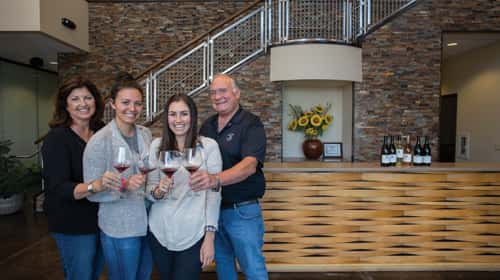
“It’s the one time of year that we all work together,” she says, and she got to see the entire process. She left for a time to work for a distribution company but returned to get more involved in the family business.
When she began working in the tasting room, she was venturing into new territory. “Sales were very hard for me,” she says, but she had an opportunity to learn and see what the goals are. She is now applying to MBA programs and believes the additional education will give her new ideas and perspectives, which she can use as an advocate for the winery. She’s not sure what the future holds, however. “I think I’ll have to figure it out as I learn more. It’s ultimately up to my parents and what their wishes are,” she says, adding that they’ll make a decision on succession, based on what’s best for the company. Meanwhile, she’s grateful for the opportunity to learn as much about the business as possible.
Winging it
When Jennifer Robles went to work at her father’s firm, there wasn’t a formal plan in place. The firm, Rudolph Inc., is a Petaluma company that provides auto financing for people who haven’t established a credit record, or have a poor one. Her father, Jerry Rudolph, had a landscaping company for more than 20 years, but gave it up when the work became too stressful and began affecting his health. “He retired, and he was playing golf every day at 42 years old with all the old men, and he was bored,” says Robles. He went to a seminar and learned how to be a middleman who purchased people’s lottery payments and annuities, and then began buying subprime paper and that led to establishing Rudolph Inc.
Robles studied floristry at Santa Rosa Junior College, and after she graduated, her parents bought her a flower shop in Novato. She ran it for two years, and while it met her creative needs, it wasn’t profitable. She eventually closed the business and went to work for her father, but there were challenges. “He didn’t bring me in with open arms,” she recalls. “He was nervous about how it might affect the family dynamic.” Her mother, Millie, convinced him to give his daughter a chance.
Meanwhile, her sister, Crissy Rudolph, also joined the business, and their father micromanaged every small task. “It caused a lot of family drama at the very least,” says Robles. She doubts he ever considered the possibility that his daughters could someday run the business.
Eventually, Rudolph started spending less time at the office, stopping by only in the morning. “We slowly just weaned him out of the company,” says Robles, and finally, they got his name off the books. He hadn’t formally trained them to run the business, so they had to follow their own instincts.
“We just kind of winged it,” she says. Rudolph had been doing everything old-school with paper, so they brought the company into the 21st century and reached out to McPherson to help them get the company on track and learn how to run it. They discovered the importance of making projections instead of just shooting from the hip, and they hired Dave Halstead as general manager. “Increasing the quality of management was one of the biggest changes we made,” says Robles, adding that Halstead taught them about the financials and gave them the education they needed. In 2017, Robles bought out Crissy’s share of the company and became sole owner.
Halstead explains that when the sisters took over, it was like having a new business. They had to build their equity in the company, and their lack of training called for extra effort. “Everyone needs to be on board in the beginning,” he says, stressing the importance of a good succession plan that addresses potential challenges. He observes that it can be tough working with family, and a person who sells might still feel tied to the company. “You have to make sure they don’t come back.”
Robles has no plans to leave in the foreseeable future, but she’s slowly working on a 15-year succession plan. “The idea is to make the company as healthy as possible,” says Halstead, so Robles will have lots of choices, and whatever opportunity arises, she’ll be ready.
Family matters
Jim Andersen, a partner at Hemming Morse, LLP, has been a practicing CPA for 48 years, and succession planning is one of his specialties. He suggests that owners planning to transfer a business to the next generation first determine whether the potential successors are qualified and capable of carrying the business forward. He finds that in families with more than one child, the parents often are so concerned with fairness and treating the children equally that they fail to make wise decisions.
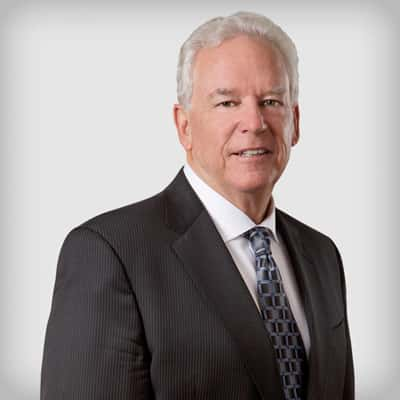
“If parents don’t figure out a way to manage their estate and decide who’s going to run the business, it’s a problem,” says Andersen. He explains that once the parents are gone, brothers and sisters don’t necessarily get along, and greed can preclude common sense and prevent a business from moving forward. “If you don’t have a great plan, it might be better to sell the business and let the children split the proceeds of the estate,” he says. If they do sell, it’s best to have experienced financial advisors with expertise in succession planning, who can recommend other team members, including a business attorney and wealth manager, to help the process run smoothly.
Should conflicts arise, families have several options to avoid disagreements. Parents might give other assets to children who aren’t interested in the business. If no one in the family is qualified, but the business is thriving, hiring a general manager or outside management is an alternative. It’s a solution that allows all the children to benefit, and they can participate on the board of directors, but aren’t directly involved in running the business. In larger businesses, having a paid board of directors is an important part of the transition process to make succession planning work.
Andersen believes the best time to start succession planning is the minute one comes into ownership. “Be thinking forward at all times,” he says, emphasizing the importance of effective communication among family members, as well as making sure operating agreements are updated annually. Then if they don’t agree, they have a way to deal with problems and avoid litigation. “Putting together a defensive plan is critical because the hazards and costs of litigation when you have family disputes can be monumental,” he says.
The unexpected
Stephanie Kirby Plante, president and CEO of CPi Developers in San Rafael, didn’t plan to work in the business her grandfather, the late Martin Bramante, founded. But then fate intervened, when her mother, Susan Bramante Kirby, died unexpectedly at the age of 53. Bramante had acquired the landfill in east San Rafael in 1967 and started Cal-Pox, Inc., turning it into a Marin County landfill. In 1987, however, he closed it since it was full to develop the site.
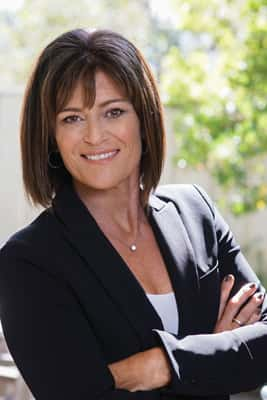
Susan Kirby began working in the business in 1980, when she took over the bookkeeping from Val Bramante, her mother, who was still taping checks into the back of a check register. After the landfill was closed, she became involved in land development and learned about state and county regulatory processes, as well as environmental and technical requirements.
Together with Bramante, she successfully developed Home Depot in 1996, after working through closure and conceptual development phases and other complex issues. “I think my grandfather always had a vision of passing it [the business] down to his children and grandchildren,” says Plante. Though his younger daughter, Kathy, was also involved, most of the mentoring happened with his eldest daughter, Susan.
“I think part of my grandfather’s succession plan was my mom,” Plante explains. She was 29 and working in television, writing, reporting and doing traffic reports for KRON in San Francisco, when her mother passed away. Her grandfather needed her, however, so she left to join the family business. “I came partially to help him and partially to have a home base to help address and close my mother’s estate,” she says. “Sometimes the best place to be in grief is with family.”
Bramante had given his two daughters and three grandchildren ownership of the company, and for Plante, what started as helping for a little while grew into something more. “I was going to own part of this business by way of his gift, and I had a responsibility to learn about it,” she says. She worked on successful development plans for Target and Marin Honda with her grandfather’s guidance. “He taught me the model that one can be successful in real estate in a safe and measured way,” she says.
After he passed away in 2014, it became obvious that co-owning the business was no longer viable since her aunt and two cousins had moved away, and long-distance collaboration and management were difficult. In 2015, she bought out her relatives and become sole proprietor, changing the company’s name to CPi Developers. “My grandfather spent many of his retirement years on his own estate plan … In his lifetime, we didn’t make any real changes,” she says, and she assured him that the business would live on, and she would run it. As for the future, her children are still in school, so it’s too early to tell.
“I believe children should find their way in something they’re passionate about. If one day we have to sell these assets, that’s what we’ll do,” she says. Meanwhile, continuing the family business has its rewards. “I love being able to sit upon the history of my family here. It keeps me connected.”
Planning for the future
Succession planning takes many forms, but what’s most important is taking the time to develop a plan. “It’s done wrong when they don’t think about it,” says McPherson, observing that people think they have years ahead of them, but it doesn’t always work out that way. He advises people not to be tied to the outcome, and if their kids don’t want the business, not to force the issue. Every business has its own dysfunctionality, he adds, but small businesses makes the world turn. “I love family-owned and operated business.”



